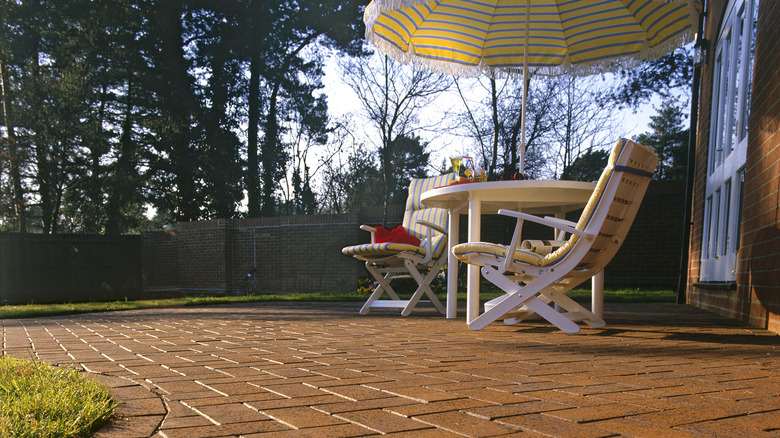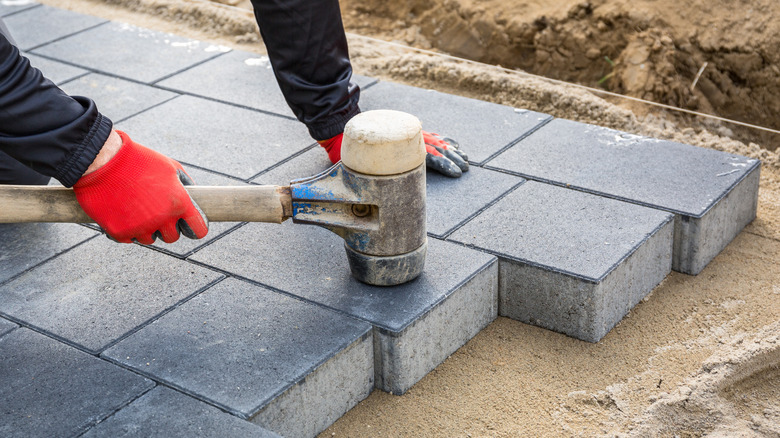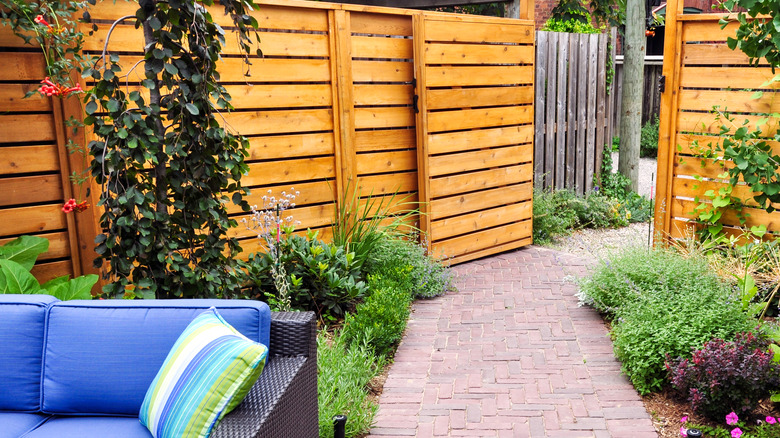Concrete Vs. Brick Pavers: Which Is Best For Your Patio?
For many people, there's nothing quite like relaxing on their backyard patio with a great book and refreshing drink when flowers start to bloom and the cold of winter gives way to spring's warmth. However, if your paved patio is cracked and ragged with weeds breaking through the gaps in a less than charming way, it might be time to consider an upgrade. These days, many homeowners are turning to brick or concrete pavers for their patios, walkways, and driveways. However, deciding between brick and concrete can be tricky.
According to Pavertime, brick pavers and concrete pavers each come with their own unique advantages and disadvantages. As such, there's no clear winner when comparing the two types of pavers. For this reason, it's incredibly important for homeowners to closely consider their own needs in order to determine which material is an ideal choice for their home. Read on to learn more about each material so you can make an informed decision.
Concrete pavers pros and cons
While concrete pavers definitely have their pros and cons, the most important factor is selecting quality material. This is because the quality and durability of the concrete are largely determined by the manufacturer's formula, according to Today's Home Owner. For this reason, reading product reviews and hiring a reputable hardscape installer will definitely pay off in the long term, even if it means spending a bit more upfront. In terms of advantages, concrete pavers are almost always a more affordable option than brick pavers. They also offer greater versatility in terms of design, thanks to the wide array of colors and shapes they come in. As if this wasn't enough, concrete pavers also impress in terms of their ease of installation.
However, concrete paved patios do have some major drawbacks. Those who long for pristine patio pavers will probably be turned off by concrete's propensity to erode and fade over time. If you opt for a unique paver color to complement your backyard, fading can really diminish your pavers' beauty. As Pavertime explains, this can be especially true if your pavers are exposed to direct sunlight, so take care to consider the environmental conditions of your outdoor space.
Brick pavers pros and cons
Brick hardscapes have a timeless appeal for many, and it's easy to see why. Used throughout the world for centuries, they are by far the more durable option when compared to concrete pavers. Whereas concrete pavers can wear out over time, bricks are less prone to erosion and can last for decades, according to Pavertime. Even better, the small cracks that develop over time only add to their classic charm. Their natural color also outperforms concrete in terms of fading, making brick pavers a lovely option for patios and walkways that get a lot of direct sunlight. So, if you are planning on enjoying your new pavers for decades to come, opting for brick is never a bad idea.
While brick pavers certainly come with their benefits, the elevated price tag sometimes has homeowners opting for affordable concrete pavers instead. This price bump applies to both material and installation costs, so homeowners on a tight budget may justifiably choose concrete, as it is the more cost-effective solution. Brick pavers also leave something to be desired in terms of versatility. While The Spruce points out that it's certainly possible to work brick pavers into a classic or modern hardscape design, the lack of color and shape options compared to concrete pavers isn't something that can easily be overcome.



